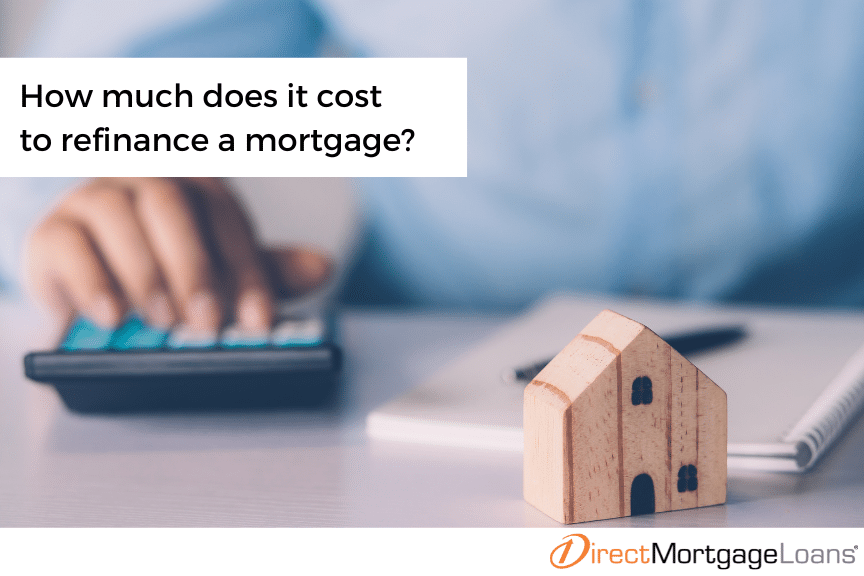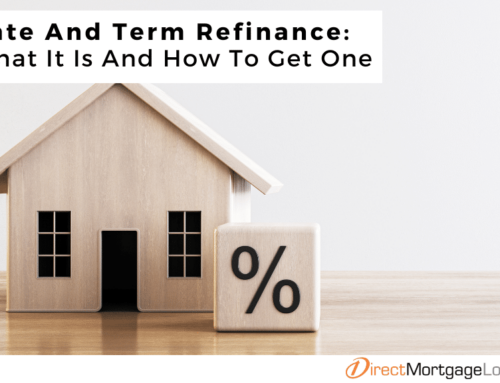Refinancing your mortgage could be a smart financial move, potentially saving you thousands over the life of your loan. However, it’s important to fully understand the costs involved to determine if it’s the right choice for you. Let’s delve into these costs to help you evaluate whether refinancing aligns with your financial goals.
Subscribe to our blog to receive notifications of posts that interest you!
What is the average cost of refinancing a mortgage?
The average cost of refinancing a mortgage is usually between 3% and 6% of the loan amount. However, it’s important to note that these fees could vary based on many factors including: the mortgage lender you choose, the current value of your home, and the specific type of refinance you select all play a role in determining the final cost.
How much does It cost to refinance your mortgage?
The cost of refinancing depends on your lender, loan type, and the terms of your new mortgage. While expenses vary for each situation, here are some common costs you may encounter:
Application Fee
Some lenders charge an application fee, which covers the cost of reviewing and processing your loan application.
Appraisal Fee
An appraisal is often required to determine the current market value of your home. This cost is typically paid by the borrower at closing.
Attorney Fee
Depending on your state or if you choose legal representation, you may need to pay attorney fees during the closing process.
Title Search
When refinancing, your lender will require a new title search to verify that no new liens or claims have been filed against the property since it was last financed.
Origination Fee
Lenders often charge origination fees to cover processing and underwriting costs. These fees are usually about 1% of the loan amount.
Keep in mind, if you have enough equity in your home, you may be able to roll these fees into your new mortgage to reduce out-of-pocket costs!
Is it always worth it to refinance your mortgage?
Deciding whether to refinance your mortgage depends on several factors including your current interest rate, long-term housing plans, and break-even point. Each of these plays a crucial role in determining if refinancing is the right move for you.
The break-even point refers to how long it takes for the savings from a lower interest rate to cover the closing costs of the new loan. Using a mortgage calculator could help estimate your potential savings and show how long it could take to recoup these costs. For personalized advice, it’s best to speak with a Loan Officer who could help you assess if refinancing aligns with your financial goals.
When To Refinance Your Mortgage
There are several situations when it could make sense to refinance your mortgage. Here are some common scenarios where refinancing might be beneficial:
- Adjusting the Loan Term: Refinancing could help if you want to shorten your loan term to pay off your mortgage faster, or you could extend your mortgage term to reduce your monthly payments.
- Consolidating Debt: If you have high-interest debt, such as credit card balances or student loans, consolidating this debt into the new mortgage with a lower interest rate could simplify your payments and potentially save you money.
- Tapping into Home Equity: If you’ve built significant equity in your home, a cash out refinance could allow you to access those funds for home improvements, education, or other expenses.
- Switch Mortgage Loan Type: If you’re worried about rising mortgage interest rates, refinancing from an adjustable-rate mortgage to a fixed-rate mortgage could provide stability and predictable monthly payments.
How To Lower Your Refinance Mortgage Cost
There are several ways to lower your refinance mortgage costs. Here are a few:
Increase Your Credit Score
If your credit score has improved since you first obtained your mortgage, you might qualify for better refinancing terms. A higher credit score can help you qualify for the best rates and conditions.
Lower Your Debt
Reducing your debt-to-income ratio could make you a more appealing candidate for refinancing. Paying down credit card balances or other debts could not only strengthen your financial position but could also help you secure a lower interest rate on your new mortgage.
Borrow a Smaller Percentage of Your Home’s Value
If the value of your home has increased, you may be able to refinance with a lower loan-to-value (LTV) ratio. A lower LTV means you’re borrowing less relative to your home’s worth, which often translates to a lower interest rate.
Use Discount Points
Discount points are prepaid interest you could pay upfront to secure a lower interest rate on your loan. While this increases your initial costs, paying these could result in significant interest savings over the life of your mortgage.
Refinance to a Shorter-Term Loan
Switching to a shorter loan term could help you pay off your mortgage more quickly. While your monthly payments may be higher, you’ll save on overall interest payments, lowering your long-term costs.
Streamline Refinance
A streamlined refinance provides an easier refinancing option with lower closing costs and fewer documentation requirements for FHA loans. If you have a solid payment history, and have been a responsible borrower, you may qualify for this easier and often more affordable refinancing option.
Government Backed Refinance Programs
Government-backed programs, such as FHA Streamline or VA IRRRL, could offer benefits like lower interest rates, fewer documentation requirements, and in some cases, no upfront costs.
What are the current mortgage refinance rates?
Mortgage refinance rates change daily and depend on factors like your credit score, property value, and loan type. To get an accurate estimate of the rate you may qualify for, it’s best to speak with a Loan Officer.
How To Refinance Your Mortgage
To refinance your mortgage, start by contacting a Loan Officer who could guide you through the process. They will help you assess your financial situation, goals, and home equity to determine if refinancing is the right choice for you.
Once you decide to proceed, gather the necessary documents and apply for a new loan. Your lender will review your application and evaluate your ability to repay the loan. If approved, the final step is to close on the new loan, which involves paying off your existing mortgage and establishing new repayment terms.
Cost To Refinance Mortgage FAQ’s
Will my monthly payments decrease when I refinance?
The impact on your monthly payments will depend on the purpose of the refinance. If you refinance to a longer loan term, your monthly payments are likely to decrease, but you will end up paying more in interest over time. On the other hand, if you choose a shorter loan term, your monthly payments may go up, but you could save a significant amount on interest over the life of the loan.
Does refinancing a house make it cheaper?
Refinancing doesn’t directly lower the purchase price of your home. However, it can significantly impact your monthly mortgage payments. By securing a lower interest rate through refinancing, you could potentially save thousands of dollars over the life of your loan.
Will a mortgage refinance get rid of my PMI?
Private Mortgage Insurance (PMI) is a monthly premium that lenders require borrowers to pay when they have a down payment of less than 20%. If you have an FHA loan or another type of mortgage with PMI, you may be able to eliminate it by refinancing to a conventional loan. This typically requires having enough equity in your home to equal a 20% down payment.
Can you refinance without paying closing costs?
Yes, you could refinance without paying closing costs upfront through a no closing cost refinance. This option allows you to avoid paying fees at the time of closing, but it’s important to understand that these costs are still incorporated into the loan in other ways.
What is a no closing cost refinance, and is it a good option?
A no closing cost refinance allows you to avoid paying fees upfront when you close your loan. Instead, these costs are usually added to your loan balance or covered by choosing a higher interest rate. While this option could help you avoid paying money out-of-pocket right away, it’s important to think about the long-term effects.
Adding these costs or accepting a higher interest rate could lead to higher monthly payments and a longer loan term. It’s best to speak with a Loan Officer to determine if a no closing cost refinance is right for you.
Can you negotiate closing costs on a refinance?
Yes, negotiating closing costs on a refinance is possible, though some fees, such as credit reports, title transfers, and appraisals, are usually non-negotiable. It’s a good idea to ask your lender about available options for reducing your closing costs.
By refinancing your existing loan, total finance charges may be higher over the life of your loan. Eligibility and approval is subject to completion of an application and verification of home ownership, occupancy, title, income, employment, credit, home value, collateral and underwriting requirements. Direct Mortgage Loans, LLC NMLS ID# is 832799 (www.nmlsconsumeraccess.com). Direct Mortgage Loans, LLC office is located at 11011 McCormick Rd Ste 400, Hunt Valley, MD 21031.






Leave A Comment
You must be logged in to post a comment.